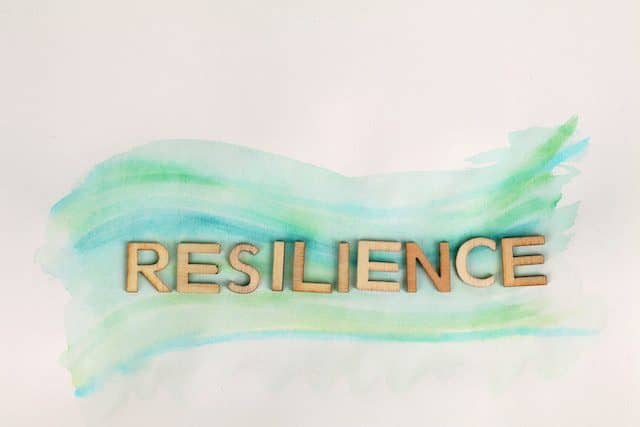
Some of the links in this post are affiliate links, which means I may earn a small commission at no extra cost to you if you make a purchase. Your support helps keep this blog running, and I only recommend products I believe in. Thanks for being a part of this community! Here's how it works.
Adversity is a fact of life that everyone faces at some point. It can take many forms, such as job loss, health problems, financial difficulties, or relationship challenges. Adversity can be tough to deal with, but it’s essential to develop resilience to overcome it.
In this blog post, we’ll explore what resilience is, how to develop it and recommend some products that can help people overcome adversity.
What is resilience?
Resilience is the ability to bounce back from adversity and maintain positive functioning despite life’s challenges.
It’s the ability to adapt to change, cope with stress, and thrive in the face of difficulty. Resilience isn’t something that people are born with; it’s a skill that can be developed and strengthened over time.
Benefits of developing resilience in our lives:
Improved Mental Health:
Resilience is linked to better mental health outcomes. When we develop resilience, we’re better able to manage stress, anxiety, and depression. We’re also less likely to develop mental health disorders in response to traumatic events.
Better Relationships:
Resilience is a trait that makes us better able to form and maintain healthy relationships. When we’re more resilient, we’re better able to handle conflict, communicate effectively, and maintain emotional balance.
Increased Motivation:
Developing resilience can increase our motivation to pursue our goals. When we face setbacks or failures, we’re more likely to bounce back and try again, rather than give up.
Improved Physical Health:
Resilience is also linked to better physical health outcomes. People who are more resilient tend to have a better immune function, lower levels of inflammation, and a reduced risk of chronic diseases like heart disease and diabetes.
Challenges of Building Resilience
One of the biggest challenges is that building resilience can take time and effort. It’s not something that happens overnight, and it requires consistent practice and commitment.
Another challenge is that building resilience often involves facing difficult emotions and situations.
It can be uncomfortable to confront our fears, failures, and other sources of stress and adversity.
However, it’s important to remember that these challenges are part of the process of building resilience and that they can ultimately help us grow and become stronger.

How to develop resilience?
Developing resilience requires a combination of mental and emotional skills. Here are some tips to help build resilience:
Cultivate a positive mindset:
A positive mindset can help people stay motivated and optimistic in the face of adversity. Focusing on positive thoughts and reframing negative ones can help build mental toughness.
Practice self-care:
Self-care is essential for building resilience. Getting enough sleep, eating well, exercising regularly, and practicing relaxation techniques like meditation or yoga can help reduce stress and increase resilience.
Build a support system:
Having a strong support system can help people cope with adversity. Friends, family, or a therapist can provide emotional support and help people see things from a different perspective.
Learn from adversity:
Adversity can be an opportunity for growth and learning. Reflecting on past experiences and identifying what worked and what didn’t can help people develop new coping strategies for future challenges.
Take action:
Taking action can help people feel more in control of their situation. Setting small, achievable goals can help people build momentum and increase their resilience over time.
Questions about Adversity:
What is the meaning of adversity?
- Adversity refers to difficult or challenging circumstances, events, or situations that people face in their lives.
How do you overcome adversity?
- Overcoming adversity requires developing resilience, a combination of mental and emotional skills. Cultivating a positive mindset, practicing self-care, building a support system, learning from adversity, and taking action can all help build resilience.
What are some examples of adversity?
- Examples of adversity include job loss, health problems, financial difficulties, relationship challenges, and natural disasters.
How does adversity affect mental health?
- Adversity can have a negative impact on mental health, leading to symptoms of depression, anxiety, or post-traumatic stress disorder (PTSD). However, developing resilience can help people maintain positive functioning despite adversity.
Tools That Can Help You Overcome Adversity and Build Resilience:
- The Resilience Factor by Karen Reivich and Andrew Shatte: This book provides a comprehensive guide to developing resilience, including practical exercises and tools to build mental toughness.
- Option B by Sheryl Sandberg and Adam Grant: This book shares personal stories of resilience and offers practical advice for overcoming adversity, including the death of a loved one, job loss, and illness.
- Headspace: This meditation app provides guided meditations and mindfulness exercises to help reduce stress, build resilience, and improve mental well-being.
- The Power of Resilience by Robert Brooks and Sam Goldstein: This book provides practical strategies for building resilience and overcoming adversity, based on the authors’ extensive clinical experience. The book includes real-life examples, exercises, and self-assessments to help readers develop their own resilience skills.
- The Resilient Mind by Brad Coulbeck: This book explores the science of resilience and provides evidence-based strategies for building resilience in our lives. The author draws on research from psychology, neuroscience, and other fields to explain how resilience works and how we can develop it. The book includes practical exercises and tools for building resilience, as well as stories of real people who have overcome adversity.
There are also many online resources available, including resilience-building courses, webinars, and workshops. Some organizations, such as the American Psychological Association, offer resources specifically focused on building resilience in the face of COVID-19 and other crises.
Conclusion:
Adversity is a part of life, but it doesn’t have to define us. Developing resilience can help people overcome adversity and build mental toughness. Cultivating a positive mindset, practicing self-care, building a support system, learning from adversity, and taking action are all essential for building resilience.
By following these tips and utilizing products like books and meditation apps, people can develop the skills they need to overcome adversity and thrive in the face of any challenge that comes their way.
Remember, resilience is a skill that can be developed and strengthened over time. By taking small, consistent steps towards building resilience, people can overcome adversity and emerge stronger on the other side.
So, don’t give up. Keep pushing forward, and you’ll find that you have the strength and resilience to face any obstacle.
Struggling with imposter syndrome check out my tips to overcome it.
